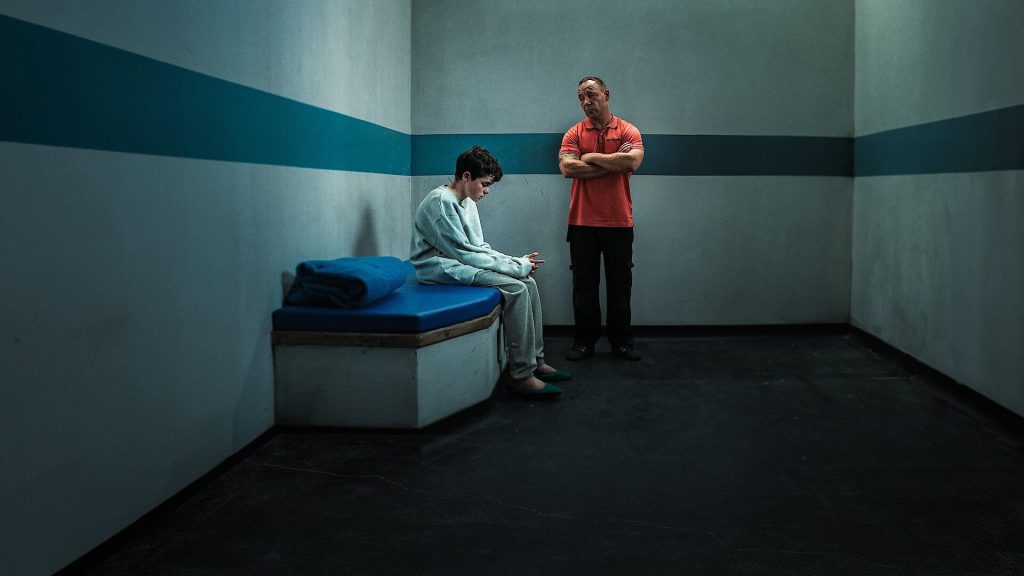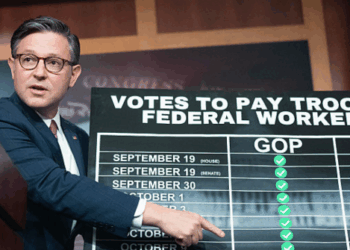EXCLUSIVE: UK Culture Minister Chris Bryant has downplayed the likelihood of the Labour government improving the UK’s high-end TV (HETV) tax credit following calls from across the industry.
Speaking to Deadline, Bryant said the tax rebate situation is being “kept under review” but is a matter for the country’s next budget, which is drawn up by Chancellor Rachel Reeves and won’t be announced for several months.
Storied industry figures like Doctor Who producer Jane Tranter and Black Doves EP Jane Featherstone have urged the credit be upgraded from its current level of around 25%, to 40%, which would match indie film, while others have called for help for cheaper shows costing between £1M and £3M per hour. This was echoed in a landmark report from the UK’s Culture, Media & Sport Committee earlier this year, which asked the BFI to “urgently conduct analysis on the potential design and return on investment of a targeted uplift” to the credit.
“The tax credits we have now are very competitive with the rest of the world but that is what we have to maintain and we always keep these things under review,” said Bryant, who spoke to us a day after his Culture, Media & Sport (CMS) department unveiled a long-awaited creative sector plan including a £75M ($102M) funding package.
“Tax changes or variations are a matter for the budget not spending review and not just industrial strategy,” he added. “We know these rebates are really successful and we certainly want to maintain a competitive position into the future.”
Plenty of stakeholders have “made representations” to Bryant on tax credits, he told us, including separate demands for a tax credit for movie distribution. But he added: “I haven’t seen the stats that make this add up.”
Bryant pointed to the previous government bringing forward the 40% indie film credit – celebrated by all and sundry and giving a boost to an ailing sector – as proof that governments do take action when necessary.
Not “frightened” of a mixed ecology
The HETV tax credit has had a gamechanging impact on Brit television over the past decade but making drama series has been tough of late, with the BBC declaring a scripted funding crisis as Americans row back from co-productions.
Costs have risen sharply in recent years, in part due to the impact of the American streamers, but Bryant is a huge fan of Netflix in particular and said he “likes a mixed ecology in this sphere and am not frightened of saying that.”
Speaking at a swanky Netflix do earlier this month, Bryant almost fawned over the streamer, calling it “the bane of my existence and the object of all my desires” due to its hefty content mix and saying “streaming has been good for the British film and television industry.”
He confirmed to us that the Labour government will not introduce a streamer levy and said that while “the arrival of streamers has posed some challenges in terms of costs,” there is a world in which everyone’s a winner.
“I want to have it both ways,” he said. “I want to have really strong content made in the UK for the streamers that is sold around world, and I also want public service broadcasters (PSBs) to thrive and make content, some of which is watched around the world and some of which is shown for UK audiences.”
Last month, Bryant had to deal with the fallout of Donald Trump’s hastily-assembled film tariff plan but the POTUS finds himself a bit distracted and Bryant said: “I don’t think Hollywood wants to go down that route.”
“They know they need to hit a worldwide audience and they make more money outside than in,” he said. “So it makes sense for them to build on these [international] connections all the time.”
Rather than impose a streamer levy and anger the likes of Trump, Bryant said “the best way to support strong production in the UK is making sure PSBs are in a strong place and have big production budgets that they can spend on UK content.”
With this in mind, yesterday’s creative sector plan included the launch of a review examining how broadcasters can consolidate and strike partnerships more easily, coming with ITV rumored to be on the sales block.
“I’m not frightened of mergers,” added Bryant. “What I would be nervous of is losing that massive production budget for British people to see British content.”
On whether the government could make it easier for foreign owners like the Abu Dhabi-backed RedBird IMI to buy broadcasters, Bryant batted away the question, noting: “If I’d wanted to talk to you about that today we’d have put it in the [creative sector] plan. RedBird IMI has been reported to be one of the buyers interested in ITV and the Jeff Zucker and Gerry Cardinale-run outfit was recently forced to put British newspaper The Daily Telegraph back up for sale after Bryant’s predecessors in government passed a law blocking foreign states from owning newspaper assets in the UK.
Bryant is delighted with the creative sector plan, which is targeting the UK being the “best place in the world to make and invest in film and TV” by 2035. He is particularly proud of the £10M investment in the National Film & Television School and £11M of private investment from the likes of the Walt Disney Company, the Dana and Albert R. Broccoli Foundation and Sky, which he said will open the industry up to more underrepresented voices.
“I want to make sure that this industry is not just the place for the kids of people who work in the industry,” he added. “We need to be able to tell a multiplicity of different stories and that’s why you need that mixture of people thinking about a career in the screen as a possibility.”
The post UK Culture Minister Chris Bryant Downplays Likelihood Of Improvements To High-End TV Tax Credit appeared first on Deadline.




